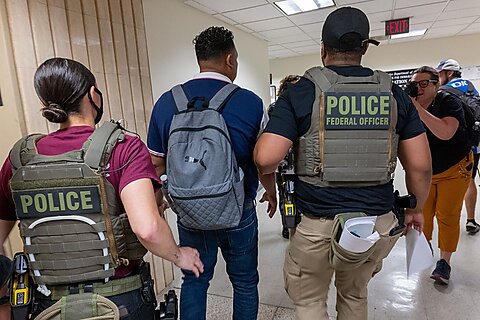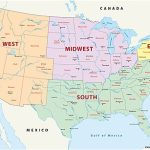
Walter Olson
One of the striking features of the present administration is the regularity with which its leaders, from President Donald Trump on down, confidently describe the state of the law in ways entirely contrary to what had been seen as settled, on topics that range from flag burning to Congress’s TikTok ban to whether civil servants can be removed on a partisan basis. Sometimes, these proclamations may herald an effort to persuade courts to change prevailing doctrine, but at least as often they look more like an attempt to alter reality by establishing new legal facts on the ground.
On October 24, influential White House adviser Stephen Miller appeared on Fox News when the issue of whether authorities in Illinois could prosecute misbehaving federal immigration agents under state law arose. Miller responded, “To all ICE officers: you have federal immunity in the conduct of your duties. And anybody who lays a hand on you or tries to stop or obstruct you is committing a felony.”
Whatever that is, it is not an accurate description of the state of the law. As Professor Steve Vladeck explains in this brief write-up, the actual rules are more complicated. There is indeed a zone of so-called Supremacy Clause immunity that will apply when “(1) the federal officer was performing an act that he was authorized to do by federal law; and (2) in performing the authorized act, the federal officer did no more than what was necessary and proper.” When either condition is not satisfied—when the agent is taking an unauthorized action or is acting under authorization but in a manner that exceeds what is necessary and proper—the immunity based on federal supremacy ends.
As Vladeck notes, the prevailing rule in this category of immunity was formulated by Judge Michael McConnell, a conservative hero, and it does indeed allow state prosecutors to use state law to pursue instances of misbehavior by ICE agents.
Here’s another instance: in a piece at The Dispatch earlier this month, I tell how high administration officials, including Department of Homeland Security Secretary Kristi Noem and department spokeswoman Tricia McLaughlin, have repeatedly spoken as if citizens have no right to photograph or video record ICE raids or identify the officers by name. McLaughlin said, “Videotaping ICE law enforcement and posting photos and videos of them online is doxing our agents,” and added, “We will prosecute those who illegally harass ICE agents to the fullest extent of the law.” Noem went even further, describing “violence” against DHS agents as “anything that threatens them and their safety, so it is doxing them. It is videotaping them where they’re at.”
In point of fact, however, the courts
aren’t on board with that sort of nonsense. While the Supreme Court itself hasn’t yet faced the issue squarely, the seven federal circuits that have done so—the 1st, 3rd, 5th, 7th, 9th, 10th, and 11th—all agree that the First Amendment protects the right to record police performing their duties in public.* Those circuits cover such populous states as California, Texas, Florida, Illinois, New Jersey, Georgia, and Pennsylvania.
Here at Cato we’ve had the honor of participating as amicus in at least three (that I know of) of these circuit precedents: Fields v. City of Philadelphia at the Third Circuit in 2017, Adkins v. Department of Homeland Security at the Ninth Circuit in 2018, and Irizarry v. Yehia at the Tenth Circuit in 2022. Adkins, the Ninth Circuit case, was especially interesting because it involved two citizens arrested by Customs and Border Protection (CBP) for taking pictures at a border crossing that they believed documented unlawful searches and other problems; the agency, which had seized the men’s cameras and deleted their pictures, asserted that the sidewalks they were standing on were property it officially controlled, but it lost anyway. (Thanks to colleague Dan Greenberg for helping compile the cases.)
To some important extent, one of the audiences Noem and her department are seeking to reach was the same one Miller was explicit in addressing: ICE agents themselves. If the agents come to believe that they have blanket immunity whatever they do, or that citizens have no right to record them, they are more likely to take aggressive informal action, such as grabbing phones or taking news reporters into custody on charges of obstruction (perhaps later quietly dropped). These informal methods of repression, I observe, can very much set the tone for enforcement, no matter whether the agency does or does not expect courts to say later.
If the agents are hearing a persistent message from their higher ups of “you’re immune no matter what you do,” it’s up to the rest of us to disabuse them of that error.






